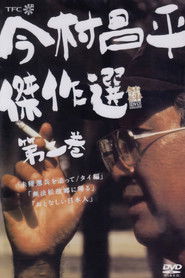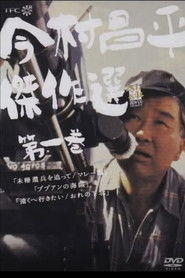
Shōhei Imamura
DirectorWriterActorProducerExecutive Producer
15-09-1926
Birthday
Virgo
Zodiac Sign
-
Genres
8
Total Films
今村 昌平, Сёхэй Имамура, Shouhei Imamura, Shôhei Imamura
Also known as (male)
Tokyo, Tokyo Prefecture, Japan
Place of Birth
15-09-1926
Birthday
Virgo
Zodiac Sign
-
Genres
8
Total Films
Shohei Imamura, Shouhei Imamura
Also Known As (male)
Tokyo, Tokyo Prefecture, Japan
Place of Birth









